#kuker
Explore tagged Tumblr posts
Text
Kuker
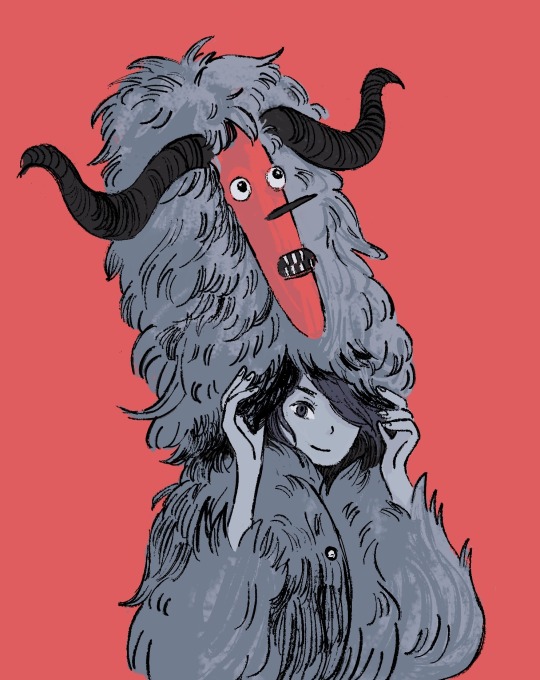
Kuker 👺👹
source
#kukeri#my art#illustration#artists on tumblr#kuker#Кукер#Кукери#art#クケリ#studio ghibli#ジブリ#ブルガリア#bulgaria#bulgarian folklore#Kuker#България
142 notes
·
View notes
Text

cannot believe it's been 10 years since I was living in Europe but I did a little Kuker illustration, this one is for @cuirassier
4 notes
·
View notes
Text


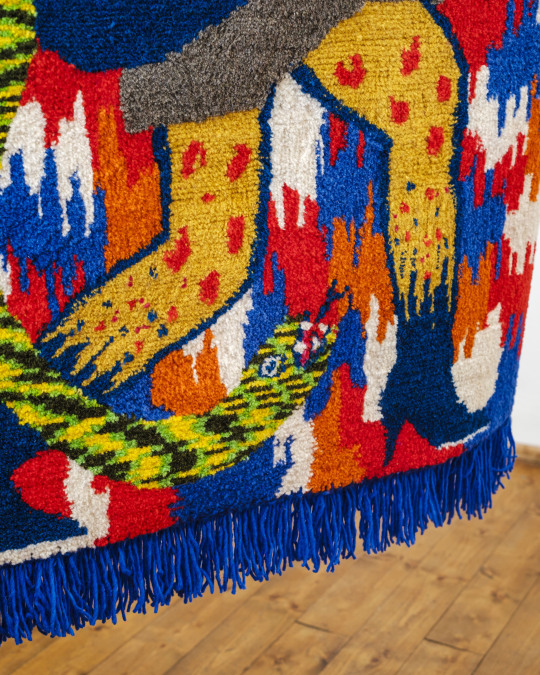

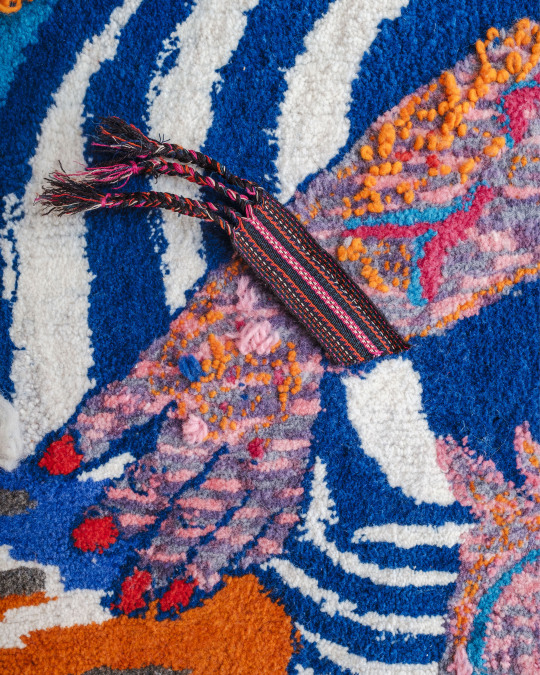

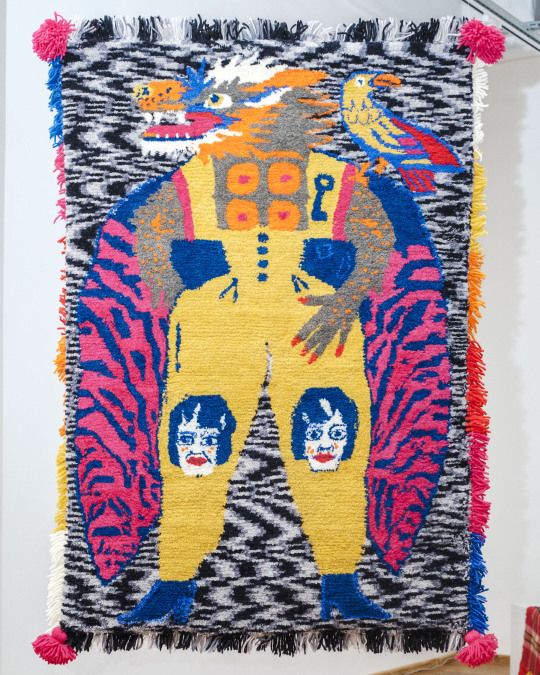

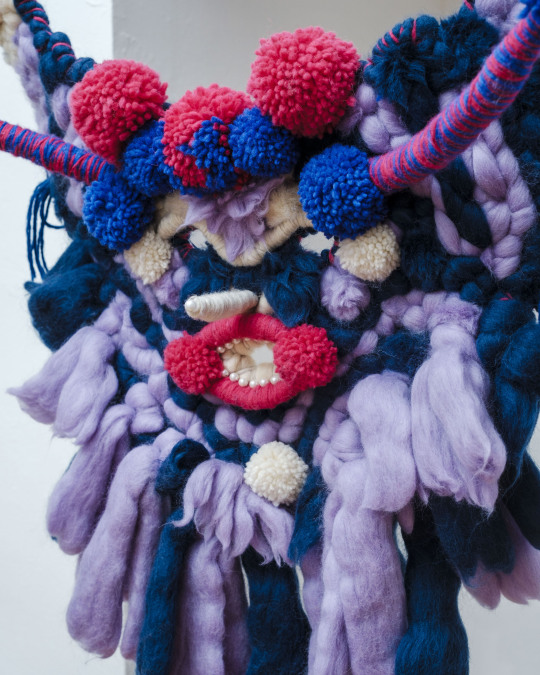





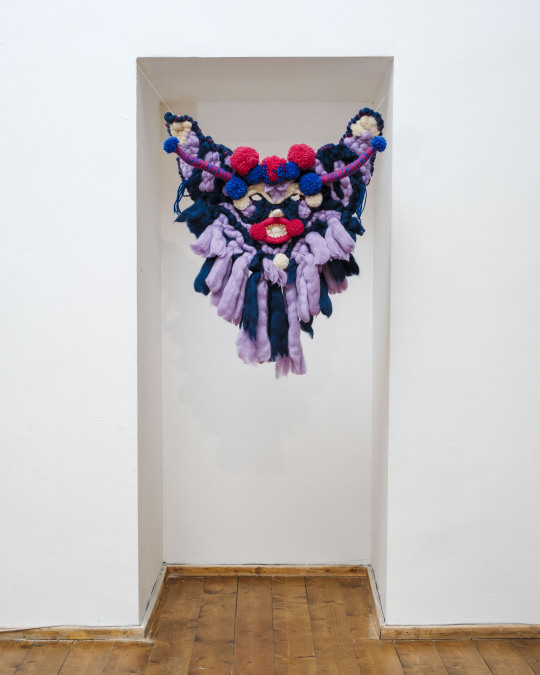
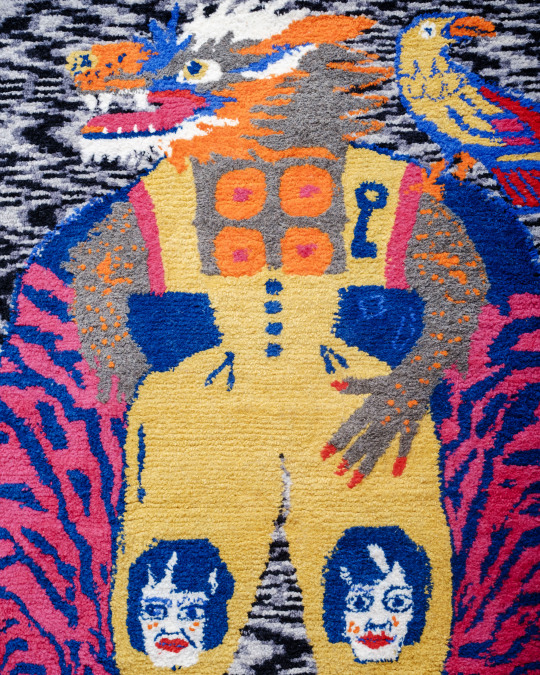

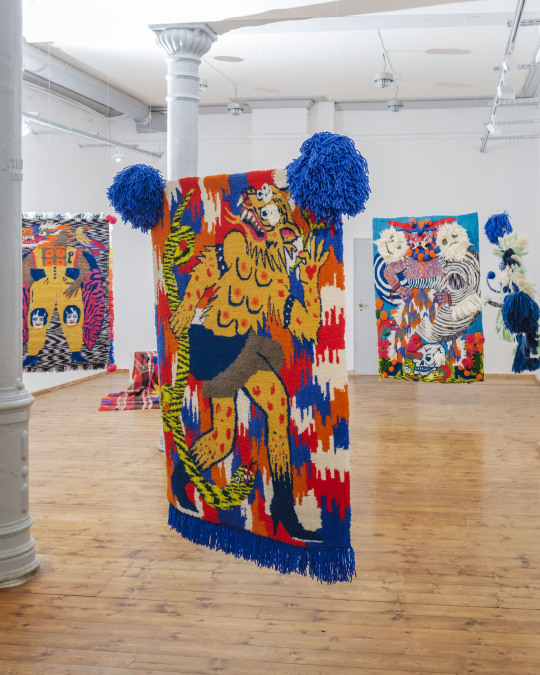
Последните дни за BEAST!
Не пропускайте възможността да разгледате завладяващите текстилни произведения на Rosie Eisor в галерия КО-ОП, София. Изложбата е отворена за посетители до 28-ми юли (неделя), 19:00 ч.!
📸 Михаил Новаков
*Изложбата се осъществява с подкрепата на Национален фонд "Култура".
#beast#exhibition#textileart#textile#tuftedrugs#carpets#masks#folkart#rosieeisor#koopsofia#sofia#tapestries#kilimi#Rosie Eisor#Mihail Novakov#kuker#kukeri#маски#кукери#фолклор#текстил
3 notes
·
View notes
Text
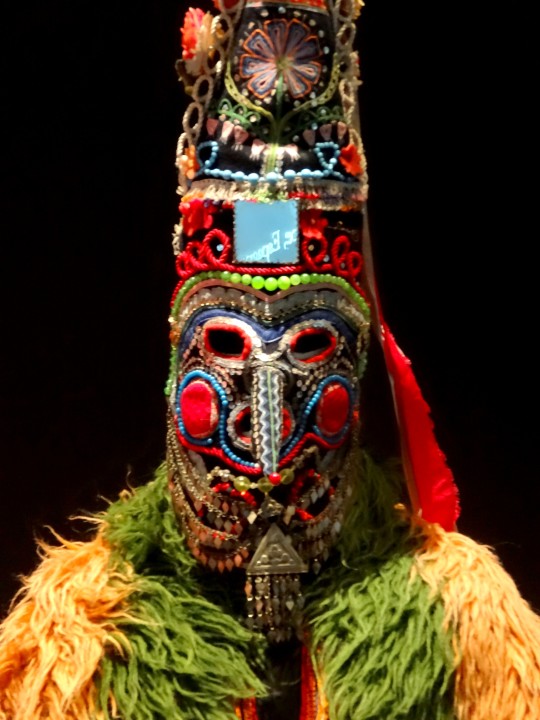
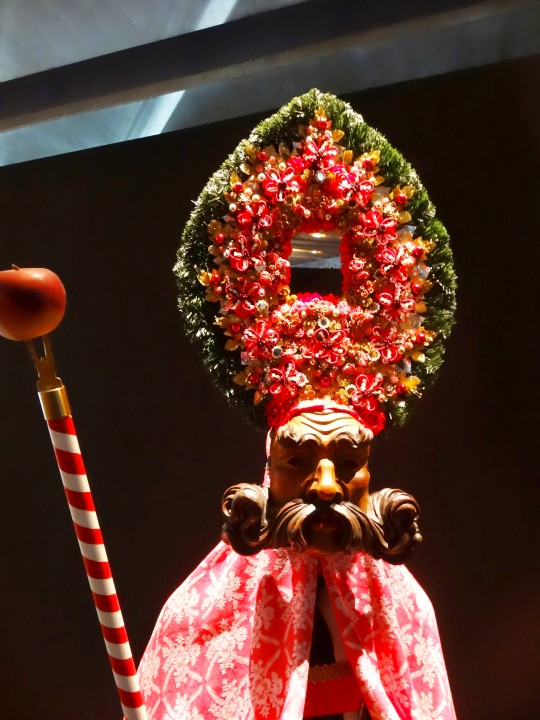
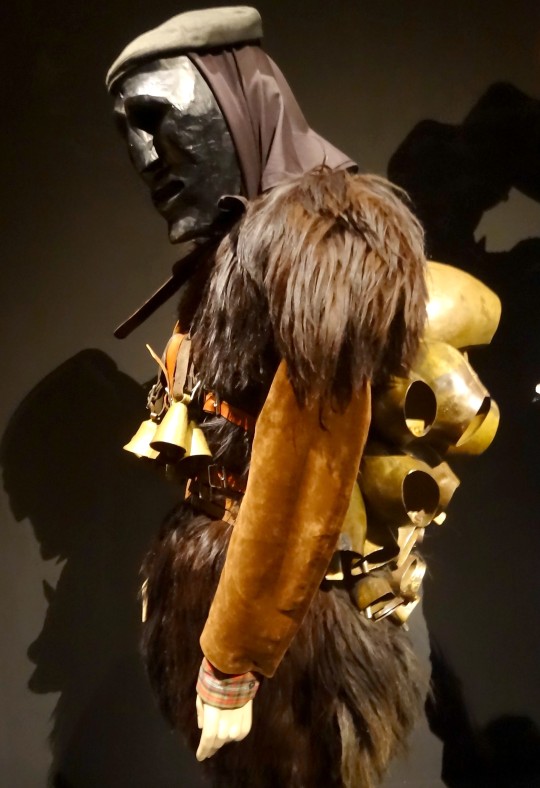
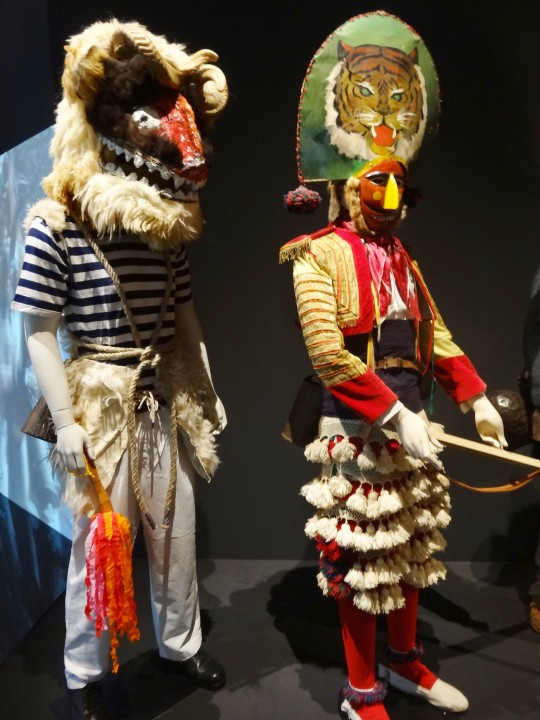
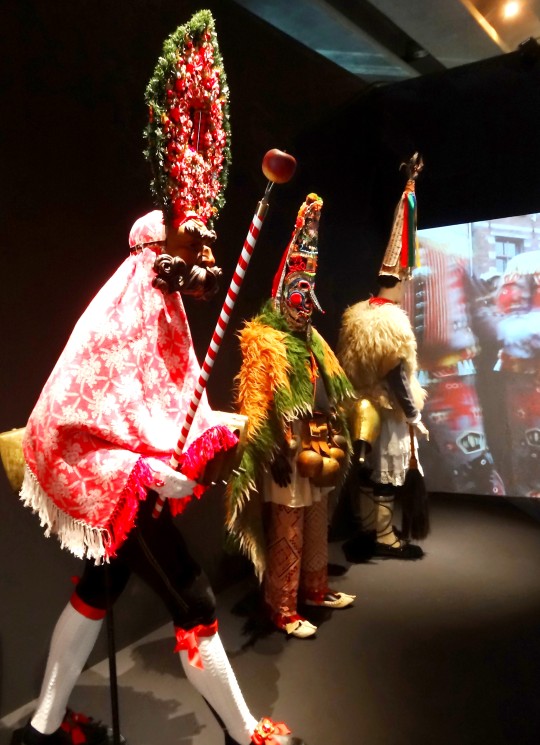
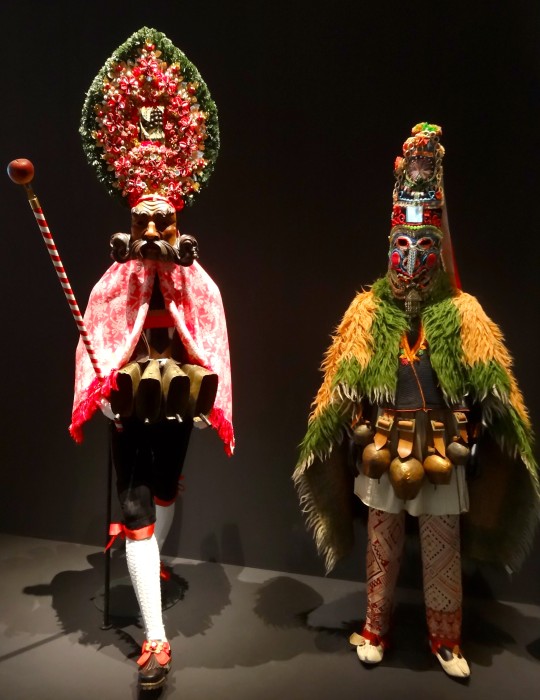
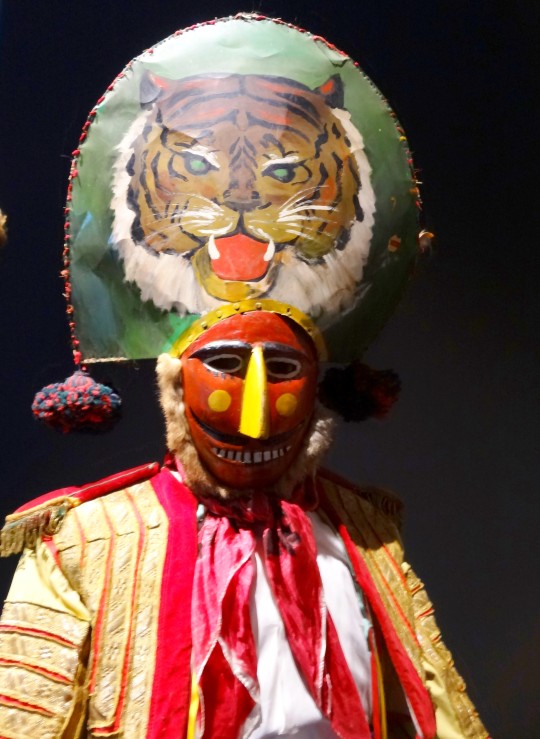
Carnaval !
Une assez longue série sur une expo du MuCEM, à Marseille : "le monde à l'Envers"
kuker (Bulgarie)
scheller (Tyrol)
mamuthone (Sardaigne)
zvončar (Croatie) + Cigarròn (Galice)
scheller (Tyrol) + kuker (Bulgarie) + joalduna (Pays Basque)
scheller (Tyrol) + kuker (Bulgarie)
cigarròn (Galice)
#carnaval#masque#déguisement#MuCEM#marseille#le monde à l'envers#kuker#bulgarie#scheller#tyrol#autriche#mamuthone#sardaigne#italie#zvoncar#croatie#cigarron#galice#espagne#joalduna#pays basque#sonnailles
3 notes
·
View notes
Text

КАРАКОНДЖУЛ (2024)
Mixed technique rug, 100% natural wool, merino wool, pearls, recy- cled fabric for the back, glue, 137,5 x 189 cm.
Beast or guardian? The character I created is infused with motifs and imagery drawn from fairy tales, myths, and folklore. The textile piece commissioned for the BEAST exhibition at KO-OP Gallery is hand-sewn and crafted using the tufting technique.
#textileart#rosieeisor#текстил#rosie eisor#beast#textile#fiberart#artworks#rugs#folklore#monster#kuker#creature#tuftedart#smile#koop sofia
0 notes
Photo




Killian Lassablière’s “Kuker,”
short documentary
#art#design#fashion#serbonian#kuker#killian lassablière#documentary#short#gif#animated gif#bulgary#bulgarian#history#roots#faith#spectral#tradition
1 note
·
View note
Text
Kapolda Sumbar kunjungi Polres Sawahlunto
Sumbar, Sumbarlivetv – Kapolda Sumbar Irjen Pol Suharyono, S.Ik. SH berkunjung ke Polres Sawahlunto. Kedatangan Kapolda tersebut dalam rangka kunjungan kerja (kunker) sekaligus tatap muka dengan personel Polres Sawahlunto, Selasa (14/3). Saat tiba di depan Mako Polres, Irjen Pol Suharyono bersama beberapa Pejabat Utama Polda Sumbar, Ketua Bhayangkari Daerah Sumbar Ny Iis Suharyono beserta…

View On WordPress
0 notes
Text
Presenting the dramatically late couple to @chuuminn's lovely NYE party tat-ta-daahh!!
I apologize for the tardiness but Fyodor's outfit for the night was quite the challenge to pull off. But we made it!
Before you - Mel and Fyodor as The Wardens of Spring









Inspiration
I thought it'd be fun to play into our Slavic backgrounds and present to you something a bit unusual - all in preparation for the New Year and all that it will bring us.
Here we have Fydor dressed as one of the Kukeri; men who'll put on the visage of vicious beasts and creatures that roam only your nightmares all in order to ward off the true evil spirits of the world. The new year should be rid of evil and misfortune if they're around. Traditionally the costume is overly elaborate with lots of garments, furs, belts. An animal mask is needed both to frighten the spirits and to shield the person underneath. Serious business, I hope Fyodor doesn't get a heat stroke from this. We pray, besties🙏
And I'll be playing the role of a Nestinarka - women who walk on hot coals barefoot. It's said they fall into a trance, not feeling any pain as they perform a ritual for bringing forth prosperity, luck, and the protection of loved ones into the coming year.
Don't worry all, I will not let him keep the mask on for long. I promise we'll behave; not setting fires anywhere and all <3
#minnie’s nye ‘24#ohmmyygod this was so much fun to do!!#bless you minnie you're a genious#damn i hope we're not too dramatic for this everyone else looks lovely and ethereal#meanwhile 👁️👄👁️#i remember being a kid and making my own kuker mask and how wild it got during the whole event#i'm pretty sure i had to jump over a firepit too for good luck#good times#fyodor dostoevsky
12 notes
·
View notes
Text
Ask blog intro - The Balladeer
The far outskirts of Ryeham gaze on in their silence as the fields of wheat sway in Autumn's breeze.. The clattering of cow and sheep bells a distant yet clear echo, and with them, a ghostly tune.
"When you hear the rattle of heavy copper bells, the soft ringing of wistful longing, and the tapping of wood on ground rhythmic– Know, beware,
of the Demon dancer roaming nearby.
For the Boogieman, will lead you astray."
Two hands move- one clawed and one not, gestures shifting in a flow of muted language only the urban legend knows.

'But that's just hearsay, right?' A weary sigh from under the Tired mask. 'People really do tend to accuse of evil what they don't understand. Don't worry though– I don't bite at all.' A strained smile wan and slightly wry, face shifted to Happy once more. 'The most I can do is smack you with my staff, honestly– If you give me a reason to.'
The Missing lifts his stick– Tap-Tap. -And leans on it casually, moving his free hand to gesture.
'Nevertheless, heard you wanted to chat. So, what brings you to this neck of the woods? Also my right eye's fine, just...affliction acting up, it'll go back to normal.' ("....Ask away your questions.")
#afk journey#cryptid!valen#project “harbringer”#demon dancer#demon warden#mummer#The Missing#The Mummer#Ask the Kuker#Ask the Demon dancer#ask the characters
6 notes
·
View notes
Text
II The "Balladeer" - Project "Harbringer" ||
TW: Ritualistic murder, violence, horror. ---------------------------------------------------
So the Syndicates running the operation have snagged a blank mask--Infused it with dark magic that can exert control over the wearer. And can't be removed once put on, no matter how much one struggles. --Such is what sir Valen found out, hogtied and muffled with a rag on the ground.
It was a fine sunny day with only mild, warm rain drizzling, and he was out on patrol around the territories near Holistone. Not because Hogan specifically said to, or because the mission required it--But on a whim.
For all his carefree attitude, the safety of the people is still priority, on the clock or not. It's a basic knight's tenant, after all, besides returning kindness in full. And the scenery was lovely, too.
A moment of some peace and quiet from the hectic hum and buzz of routine, respite after the adventures with the Magister. (Don't get me wrong, I loved every second of it- Better than most of my cases- And I would join Magister Merlin again if given the chance! I just need a breather from chaos for a bit before bouncing right back. That's all.)
A projectile pierced through his armor and fur trim, stabbing his back. And a numbing feeling spread out from the spot between the shoulder-blades like poison or venom. That's how it all started. A lasso was thrown, winding around his mid-torso and yanked back hard, that the knight lost balance in his stagger and fell onto his side on the ground. Syndicate goons descended onto his prone form like blood-thirsty hounds, grappling and manhandling callously before he could so much as recover and spring into his signature move. Stormcaller was kicked out of his hand and away. My-Our...? (Our?) hands and legs were tied with ropes. I (We..) was-were- hoisted like a lamb (to the slaughter.).
And away the captured dove captain of the Solitaires was dragged taken. to a campsite far up northeast near Franz's yard. Only the trusted sword he'd stolen away from an illicit auction back in the day. When Solitaires were spies and hounds for the wealthy, thieves from slums and haven't lost their life for any reason at all.I had no other choice! I had to gamble and steal, I had to do all those Snakes' bidding and dirty dealing Waiting for the knight to return and reclaim it.
...
Sitting on the cold, damp grass, limbs tied-- Valen watches as the Syndicate mages carve out runes into the soil, their grating unnerving voices sending his skin crawling and blood boiling with indignance. Chilled by creeping, trickling dread, goosebumps rising- Somehow this feels different. Like the Autumn sun caressed his face, armor and clothes for the last time with its feeble warm rays. A thought nagging he hurries to squash down with sarcastic humorous words and lighthearted affirmations of confidence, sweet nothings.
Brows furrowed in a frown of annoyance with schemes on his mind, the brunet darts his eyes around the vicinity. He's always prided himself on how resourceful and cunning he is, besides his disarming silver tongue and melting charms.
Only swinging a sword well does you little good, after all. Can't have only one or three tried and true tricks, cards up your sleeve. (And what good did your opportunism do for you..? Shut up! Will you stop calling me out at every single turn already?! Just....at least let me have this one moment of pretending to still have my dignity...please? .......) Nothing readily close to his side- Aha! A knife sat atop a barrel a meter, two away in the tent to the right. Perfect.
Glancing at the cultists still busy with the spell set-up, one of the other goons walks struts over with arms full of coals. Valen makes his move, scooting over like a worm towards the unsupervised tent and barrel, ignoring the sting and soreness. Duck inside, knock down the dagger and cut off the ropes binding the wrists, the ankles next. Should be easy-peasy from there.
The sound of fire catches his attention, a sure signal time's running out-- The solder tries to scoot faster, heart thumping and tension buzzing into the beginnings of panic. Almost there! Just a meter left! So clo--A hand grabs him by the ropes around his torso-
"Where do you think you're going, ha weasel?" 'Mf!' -The hand drags him away. Away from the tent, away from the barrel, away from the knife- Away from freedom. And all his squirming, kicking and muffled protests are in vain, hauled into the inner circle of lit-up coals in the center of the bigger one of carved runes.
None of the symbols are familiar enough to properly, but it vaguely seems to have to be related...to binding. Trapping something. ...But what..? And don't these kind of spells need an object rather than sacrifice? "I wonder how those idiots at the meddling Order would react, when their skinny rat shows up to set 'em ablaze! Haha! Oh it'll be so much fun watching them rot, barking and tearing at each other while at it! Blame that fool for adding our lot into their fortress!"
What?! No! Not again- Dura have mercy, Not again! There's too much riding on this! If the Solitaires ever get outed, get thrown back into the same league as the Syndicates guild, mercenaries and ruffians--Everything would crumble! Reputation, resources, connections, all of it will go down the drain! Goddess, please! The mask, blank and featureless plain is shoved onto his face, many invisible tendrils of dark magic latching onto his skin--
Can't move- Can't move! Get it off-Get it off- Get it off! I beg you! Spare me! Have mercy! Dura, help me! Goddess please have mercy-I can't die like this! I can't die-! The chanting whispers are everywhere, incessant, a lump forming like nausea-
The night sky is peaceful, puffy clouds drifted aside leisurely, a golden full moon revealed. If, for just a moment.
A sense of hollowness, weightlessness, yanked out of his body and neither fully dead nor fully alive- Scared. So scared, and tired, and overwhelmed, and lost, and where did I go wrong?- What sins did I do, to deserve this? I called upon the Goddess, why has she not stepped in? I beg and begged-- I haven't been the best man back in the days, I know, and I'm not the most faithful, I know. And I'm a sinner, I know. ..
A star flashes in the sky, much bigger and brighter than the rest, its cold blue-white light changing to colorful glow.
But don't I deserve another chance, too? Or are my sins far too heavy as the Templars have always endlessly nagged?
A wisp, like flickering and crystalline fires flows down in flare of gold, yellow, scarlet, teal and swirling as it descends akin to a wishing star. Like northern lights coming down with their breath-taking majesty. The 'aurora borealis', wishing star, flames of swirling colorful wisps flows down closer to the ground...a hum of energy, the rush of wind and warbling of birds, the thrum of snow and thumping of war, the chill of desolation and isolation from fleeing being hunted. And he 'hums' back with his own energy, forced to rise, spiral upward- towards that 'northern light'. So close yet so far away, it flickers harshly like a candleflame disturbed. Frantic, restless, agitated, panic, run, flee, escape, scared, so scared- But whose quivering 'tuning-fork vibrations' are those? Don't I, too, deserve to be saved or helped in peril at least?
The other seems to be flowing in the direction of south, hopeful but weary and skeptical, A glimpse, A wanderer of extinct race of Song and Music, Reincarnation, New cycle, fifth or sixth, Another iteration, Be reborn within a family, go through life once more as countless more- in the past and the future-- But the flame gets sharply seized in an iron, merciless grip and yanked down. It crashes straight down like an arrow shot from bow, crashes right into him with a felled cry of alarm- Both collapsing like a boulder hurled from the sky- Oh gods it hurts, so much agony, so many memories, a frantic jumbled and jittery mess, crescendo of total cacophony, nothing makes sense- everything makes sense- The mask- his -my-our? body- too cramped- can't breathe, help me- let go! I can't! I'm trying I can't- Mom and dad are counting the coppers again- taxes are high..., Mother plays the lyre, singing a song with a smile, siblings are listening raptly- I snuck out to ride the winds, Day in-day out swinging my wooden sword- What else can I be? Other than a solder? I don't have education beyond the very basics, I don't have the money to bribe, Family burns alive and hunters and hounds laugh in joy, Why didn't the gods do anything?! Where's that Hag?! Nothing! They, are doing, n o t h i n g ! Only quarrel! Only laugh! Why?!---
It happens in seconds, milliseconds-- Consciousnesses pried open and bridged, melted, melded together, memories, thoughts, everything; They share one body already, the two souls struggling to stay separated but forced to intertwine by the spell. Pushed and pressed to meld together more crushingly the harder they try to cancel and repel each other, the fusion process marching rapidly. Already intertwined, laced together tight, stitched and sown, glued.
Slowly, changes begin to seep in. Streaks of his hair turn snowy, from light auburn brown--straighten out; Valen heaves an exhausted mournful sigh, no longer pushing away at the other poor spirit pressed up against him, nor the curse crushing them together more and more in binding. I'm always fighting.... What's even the point if my fate's sealed? ....I just...want to sleep., for a while.. I don't care anymore..... And the knight lets go, relaxes entirely,..and closes his eyes.
Maybe it's not so bad, having *FweeEp'Rrrin*- -Ioan, Ekchauh, Hestios close like this. We've both always wanted to be loved, without waiting for the other shoe to drop. ....Guess our dreams were granted, in a morbid, sick and twisted way.
....at least i won't be alone, never. having someone is better than having no one, Right....?
....So you'll simply lie down on your back? Just like that?
Violet eyes steadily turn paler a hue, round human pupils elongating slightly and thinning out to slits. The irises coloring with speckles of charcoal black, earthy brown and molten silver ... As the mask on his face suddenly changes. The young man only allows his arm to wrap around the other soul's back with a tired but mildly amused smile, free hand clasping a clawed one, lacing their fingers.
Can't blame you for judging me, being incredulous- I am being a defeatist. But.. you know I can't keep thrashing, Vanyusha.
Then I take it as a yes. .... You really raised your white flag easily. Barely fought much.
A deep, blood red with a silvery bead-eyes that have navy patches under them, the 'pupils' just holes. And its mouth is open into a ghastly silent shriek of both agony and ire, sharp teeth on display, big, thick bushy black eyebrows creased into a frown. It has long bull-like horns on the sides along a set of a ram's under them, and a mane of long, thick shaggy greyish fur, some streaks tied into braids and 'beard', nose like a crooked sewing needle.
The knight's uniform shifts to a white shirt with red embroidery on the sleeves and collar, a long vest of thick black and white fur over it that is reaching down to his knees; boots becoming same as the vest but bound with sturdy black strings.. and leather slippers. A red sash on his waist, a thick leather belt atop lined with hefty bells both big and small.
The haggard soul chuckles, not taking offense to the harsh, blunt words stated. Not like his partner doesn't have a point. ..Funny how it's like they've intimately known each other for millennia if not since time immemorial, even though realistically they've only just met on this unlucky night. But that's the crux and the tree sap, isn't it?
They are, quite literally, infused into one. The 'I' and 'Me' have been taken out, traded for 'We' and 'Us'. All of them has been meshed into one amalgam seamlessly almost, the cracks very tiny- insignificantly so. There are no secrets hidden between them, all is known to one another. Every nook, every cranny, so profoundly vulnerable with no option to raise walls. Inseparable, coalesced in all the ways.
You're exhausted yourself, too, you know. It's not like you could keep writhing much longer either, I simply cut my losses.
....i'm sorry, For not preventing this sooner.
You were tricked. You couldn't have known. And...? Now what..? I leave the retribution in your hands. I know you'll take wonderful care of me...Of us, love.
..........
The rope keeping Valen tied snaps on its own seemingly. The other binds incinerated in a blink to not even ash, the tall and thick stick of sturdy old ash or hickory wood held firmly in his fist; obscured by the long-fur sleeves, rising to his feet. Crystalline blood-red flames slither and entwine around the upper part of the staff like veins or snakes, forming a sharp blade with 'teeth'. The masked face slowly turns....And the Adamant Syndicates freeze, the world around them feeling like it's fading away to a cold, dark, endless void deeper than any abyss. Cold...So cold..
.....The gaping, frowning mouth of the mask sloowly turns upward, the sound of metal bells rattling creeps- quietly, at first, just like chuckle, the body turning as well as the bells' clattering and clanking grows in volume with the snickering turning into a horrid clashing cacophonous mesh of furious yelling, hearty jovial laughter and sorrowful weeping, the mask's expression flipping rapidly between a crying one- The bead eyes elongate and downturn, going from silver-colored beads to blue, the burly black eyebrows twisting accordingly and the mouth downturns, lower lip curling like that of sad drama mask, the teeth now on the lower jaw.
-furious one, like how it was previously to grinning, to a cheerful one and pauses like that for a second then glitches back. The rattling is maddening, overwhelming and disorienting, startling all at once..keeping the Adamant Syndicates paralyzed in their spots with looks of pure terror.
The monster charges forth-
youtube
A man, masked and dressed in such a way he looks like a demonic monster... stands in a clearing near Holistone, in the darkness of the night; his head is bowed ever so slightly, listless, and gaze turned to his hometown.. as a gentle song of softly chiming bells echoes around him, coming from him, somehow. But the figure isn't moving in any way to make the array of bells hanging off the thick leather belt around his waist sway and jingle.....But the soothing, consoling melody keeps on flowing, as though there is another man with bells dancing nearby..
There is no one.
Only the lone figure standing in the distance with stick held in his non-clawed hand. Leaning on it like a shepherd.
-The wistfully comforting chiming prickles the young woman's attention, a gem-magic enthusiast who had (yet again) slipped out of her adventurers' camp. With curiosity shinning in her darker faded purple eyes, Fay follows the wan notes, a dancy pep and spring, and skip-twirl to her steps as she finds herself unable to resist humming along (albeit her sunny canary-like tone not matching it). Reaching the outskirts, something catches her eye, noticing how the melody is clearer now. Squinting, the Magister's apprentice can only make out a figure's silhouette, a man....Lifts his mask a little, gazing back at her with an expression she can't quite discern, face and eyes so much like Valen's! Even the hair! ...But..something about this figure isn't quite right. A little...off.
....Valen..? Is that you? ..No. I'm probably mistaken and imagining things. I'm sure he'll come back home soon! And the Heroic Order will find him- They found his sword yesterday! And some of his colleagues had seen him before he went missing, so I know they'll have a breakthrough!
I should go back before Marilee and my colleagues get worried I got into trouble.
Shrugging her shoulders to herself with a bright, optimistic smile, Fay raises a hand and waves energetically as hello and goodbye; then turns and skips back the path she came from, returning to her team's camp.
...The man lowers his mask back on, slowly turns and walks away like a ghost, the melody still playing after him. Ringing with each step, accompanied by the thump-like tap of the stick against soil.
It's been six months now, since Valen went missing.
Every now and then, the Solitaire's disappearance is still unknown mystery. None of the Order have been able to get a breakthrough, learn of what his fate is....But they swear that they can hear the sounds of large variety of bells and rattling, accompanied by the tapping of a staff striking ground harshly with firm thumps.
Maybe glimpse a masked figure, the mask's face contorted into a furious threatening frown as he dances a foreign dance, unknown to the Empire--chases the Hypogeans and hypofiends, scares evil spirits away with a voice a frightening cry that's a mix of an angered yell, a cheery hearty laugh and a mournful sob all into one at the same time. Speculations have brewed on the entity's nature and identity, yet none held concrete evidence. Some going as far as linking the cryptid creature's voice to Valen's, frantically explaining and clarifying that he sounds as though having a cold, hence the almost Death-like breathless rasp to it. Once again, those claims have no concrete proof to support or debunk them.
The case of the missing former captain ever so slowly beginning to grow cold as the trail that has been traced and retraced over and over, while the entity has been dubbed as ''The Balladeer'' due to his musical nature. ..There seem to be rumors that have been floating around the desert, sounding like another missing person case, uncannily similar to the current. Something about the Uru clan's secondary chief having disappeared without a trace a year ago, speaking of an entity known under ''Damoiseau'', or ''Nabī'' and '' 'aemaa". Not enough concrete evidence there either nor eye-witness accounts credible enough to be taken into account beyond pinning them to the corkboard.
Every now and then, the clanking of bells echoes around the territories of Holistone and Ryeham..
#afk journey#afk journey fanfic#fanfic#afk valen#what if scenario#project ''harbinger''#angst#one shot#Youtube#The Demon Dancer#The Mummer#Mummer#“Kuker”#The Demon warden#“Missing”#“The Dancer”
3 notes
·
View notes
Text


Last week Train Ride and Le Chateau des Chats took part in Golden Kuker, international animation festival in Sofia, Bulgaria. The festival took place from the 8th to the 12th of May, with both films screening in the Short Film competition.
The festival was first launched in 2010 and has been held annually ever since. The festival is a bridge between professionals from all over the world, showing the best of Bulgarian and world animation. Each year the festival focuses on the preservation of the environment, a traveling version of the festival is held in the countryside as well.
A huge congrats to both films for yet another international screening.
#aub#aub animation#aub animation graduate#festival#graduation animation#film festival#golden kuker festival
0 notes
Text
Thinking this is my next vacation.
0 notes
Text
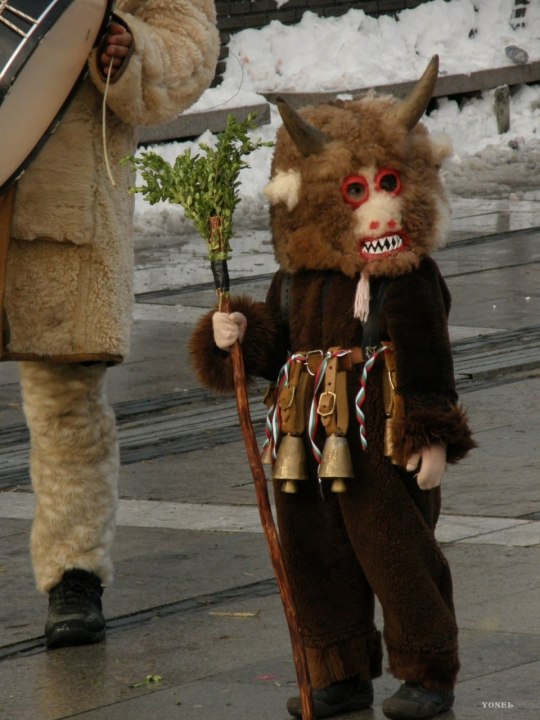
A young boy in a Kuker costume, these costumes are part of a tradition that some historians link to Thracian times. Their "scary" visage and bells are used to scare away evil spirits.
5K notes
·
View notes
Text

During a heatwave in July 1927, Meyer and Annie Kuker, with their mother, Fannie, get some fresh (if hot) air on the fire escape of their home at 59 Norfolk Street, on the Lower East Side.
Photo: Bettmann Archive/Getty Images Instagram
#vintage New York#1920s#fire escape#heatwave#vintage summer#Lower East Side#vintage NYC#cooling off#coping with heat
158 notes
·
View notes
Text
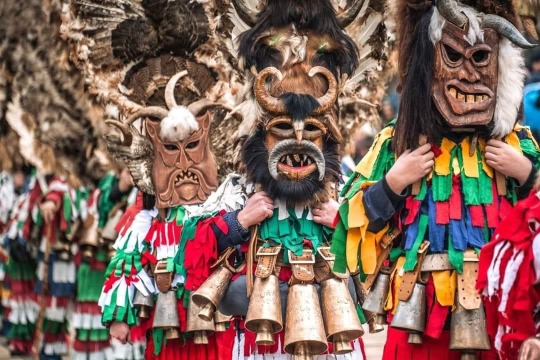
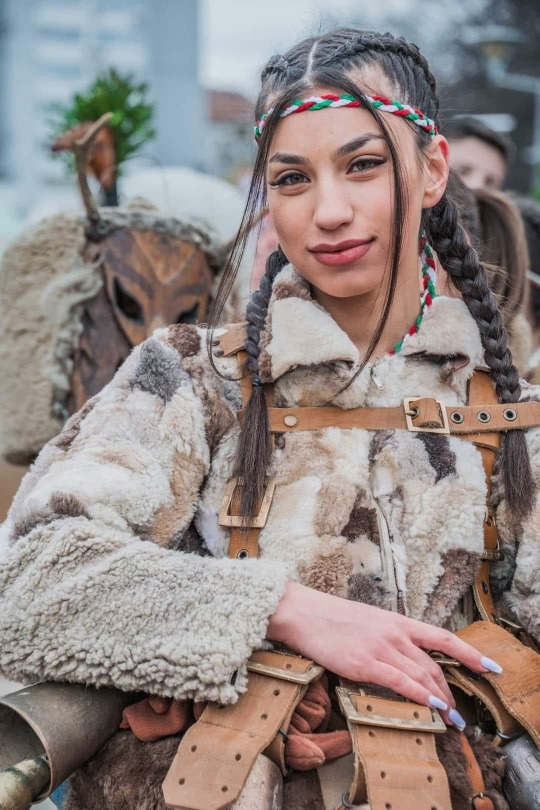
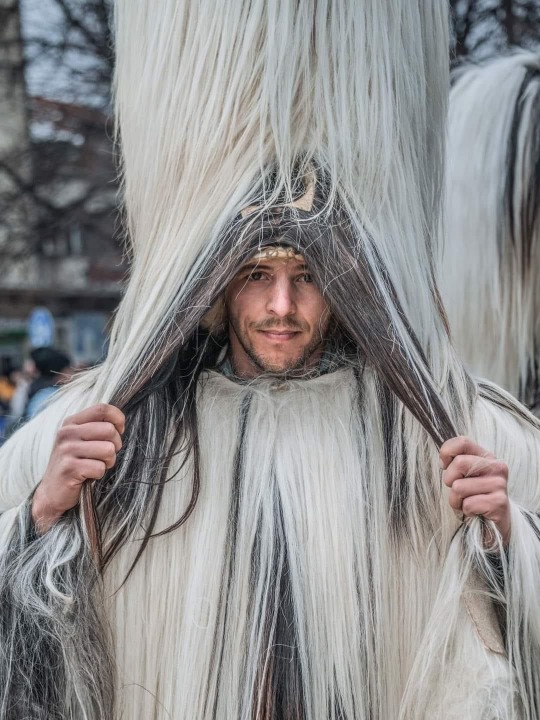
Kukeri (Bulgarian: кукери; singular: kuker, кукер) are elaborately costumed Bulgarian men, who perform traditional rituals intended to scare away evil spirits.
79 notes
·
View notes
Text
Concept design test - Turned final + "lore"





The only thing that went bye-bye, was the lipstick.
----------------------
Lore of the Knave - "Arlecchino"
|> Intro (origins?) story |> Resonance hall idle "animations" & "voice lines" |> "Voicelines" -Main theme- In-depth dive - Voice headcanons |> Secondary theme (Battle/Intro theme) - Forest Dance >> Themes playlist
====Resonance hall idles, affinity lines & "voicelines"=========
The Knave's ''animations''
1) One of Arlecchino's idles in res hall is him summoning little warblers (see "Secret, can you keep it?") and look at them perched on his finger/in his palm with this expressionless look. Maybe tiny hint of mournful/fond/pensive for a split second--Then curls his hand into a fist, the bird turning to magic dust that scatters out through his fingers upward and fades. As he turns back to the screen with his idle full-body pose.
2) Standing in that pose as in the picture above, but his eyes glance at the fire phantoms (similar to those in Arlecchino's boss fight trailer, fire-shadows with their hands over their chest and holding scythe?) that slowly emerge behind his back from him (like some dementors in a way) and he dispels/dismisses them with a wing, eyes closing as if in pain/agitated and looks back at the screen with his resting face.
What his summons kind of look like/idea-

The Knave's voice-lines
Deploy: "Noted." (Emotionless cold)
Upgrade: "Hm." (Contemplative but not ungrateful. Just not huge reaction/enthusiasm)
Ultimate: "Witness my rise." (Like how Arlecchino says it. It's almost a rough growl in a low voice, that tapers to how Berial sounds in his ult)
Defeated: "Another...cycle.." Previous defeated line "I will..come...back.." Victory: "What's our next objective?" (clinical again.)
First Recruitment: "Name your contract."
-Resonating Hall Idles-
1 "You have something to say? Go on. You have my full, undivided attention." (With his back to you, arms folded behind his back and tail on the ground and curled around his feet a bit. Then glances at the Player slightly over his shoulder as he crosses his arms, expectant and still waiting for you to speak up. Then his tail-tip gives a single tap on the ground as he sighs through his nose -suppressed sigh- and turns around to face the screen to assume his idle pose.)
2 "....." (The first idle I described with the birds)
3 "...." (The second with the shadows)
4 "Is this everything..?" (Emotionless, asking you if he's dismissed.)
---Affinity Gift---
General line: "......thanks."
When gifted fav item -Either a demon's eye or flower bouquet: "....Home......I can hear them sing..." (Closes his eyes with a wistful tint to his expression, as if recalling fond memories...and being hurt but smiles ever so subtly, a sad tired smile of longing.)
When given item he hates (Can be Celestial sword or Graveborn lantern): "............" (Very cold, mildly agitated silence mixed with agonized mourning.)



Official tags for The Knave cryptid: The "Mad-Hatter", "Arlecchino", The "Knave" , project "harbringer" , "Harlequin", Pawn of contracts, the Solemn jester, Solemn jester
The other Cryptids' ask blogs |> The Damoiseau - "The Blind prophet" |> The Balladeer - "The Kuker" / "The Missing" |> The Marionet - Executioner/ The "Debt-collector" |> The Fair Gentleman / Unbound Will- of wisp






#project “harbringer”#Cryptid!Berial#afk berial#“Arlecchino”- Berial/Pirin fusion#“The Mad-Hatter”#afk journey#afk journey fanart#The “Knave”#“Arlecchino”#“Harlequin”#pawn of contracts#The Solemn jester#Solemn jester
10 notes
·
View notes